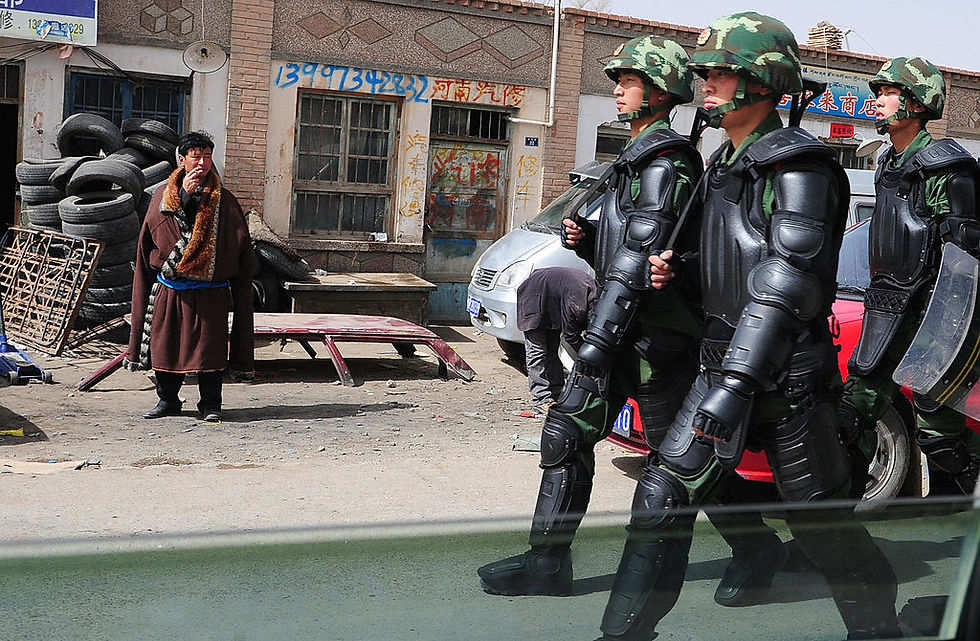China's strategic manipulation of UNHRC: A threat to global human rights
- Rishi Suri

- Sep 28, 2023
- 3 min read
In a recent development, diplomats based in Geneva representing 11 nations, including delegates from Pakistan, Belarus, Nicaragua, Venezuela and Cuba, embarked on a visit to Tibet. The outcome of this visit, though unsurprising, underscores the concerning state of affairs surrounding Tibet's human rights issues, with envoys dismissing the claims as absurd and misleading.

The Chinese leadership under Xi Jinping has long leveraged the United Nations and its various arms to counter allegations of abuse and coercion, notably in the context of Tibet. This maneuver not only exposes Beijing's fervent determination to propagate its narrative on Tibet but also underscores the ineffectiveness of the United Nations, particularly the UN Human Rights Council (UNHRC), in safeguarding global human rights.
Tibet holds strategic significance for China, a fact that has been evident since Beijing's targeted actions in 1959 and its conflict with India in 1962. Recent efforts to control the reincarnation of the Dalai Lama demonstrate the complexity of Xi's Tibet policy – an attempt to exert control by promoting an atheist ideology while seeking legitimacy as a leader in Buddhism globally. The end game is to establish dominance in Asia, effectively aiming to achieve multiple objectives with a single strategy.
China has long recognized the utility of the United Nations, especially the UNHRC, in advancing its narratives. Through its Wolf Warrior Diplomacy and economic influence, China has successfully targeted the UNHRC, a body that should theoretically remain immune to such influences, considering China's extensive history of human rights violations in Tibet. This seems even more preposterous when one considers the widespread positive perception of His Holiness the Dalai Lama outside of China.
China's narrative revolves around the notion that a contented population equates to human rights protection. However, it is crucial to distinguish between "happiness" and genuine "human rights." China's implication is that as long as Tibetans appear "developed" and "happy" on the surface, the preservation of human rights becomes secondary. Chinese Foreign Ministry Spokesperson Mao Ning's statements during the visit by the 11 UN envoys reinforce this narrative, suggesting that nations should pursue their unique path of human rights development, effectively code for disregarding human rights when it is perceived as a threat.
This narrative finds traction, particularly among smaller, financially vulnerable nations susceptible to China's Debt Trap Diplomacy. These countries, swayed by China's influence, partake in orchestrated visits to Tibet, allowing China to shape the narrative as it sees fit. The visit of UNHRC Chair Michelle Bachelet to Xinjiang last year serves as another example of this manipulation. And what is more telling is the fact that she only referred to Tibet only marginally, effectively letting Beijing off the hook. While foreign policy analysts may discern the truth, the general populace often succumbs to this narrative warfare, favoring development over human rights in debates.
Yet, in the case of Tibet, the reality is far from development. Tibet faces the depletion of water resources, forced indoctrination in CCP schools, mass arrests, and the suppression of dissent. Tibetan language, religion, identity, culture, and traditions are under assault. What may appear as development to the 11 envoys is, in reality, a well-orchestrated deception aimed at silencing critics. This pattern mirrors the situation in Xinjiang, East Turkestan, and Inner Mongolia, where China employs similar tactics, ensnaring even international organizations like the UN and UNHRC.
The international community must unite to not only condemn China for its deceptive practices regarding Tibet but also advocate for its disqualification from the UNHRC. A nation that fails to respect the fundamental principles upheld by the UNHRC has no place within it. The UNHRC must set an example, for failure to do so risks the faith of countless human rights defenders worldwide. China and Xi Jinping should not be allowed to extinguish the very essence that motivates the United Nations. The time for action is now.




Comments